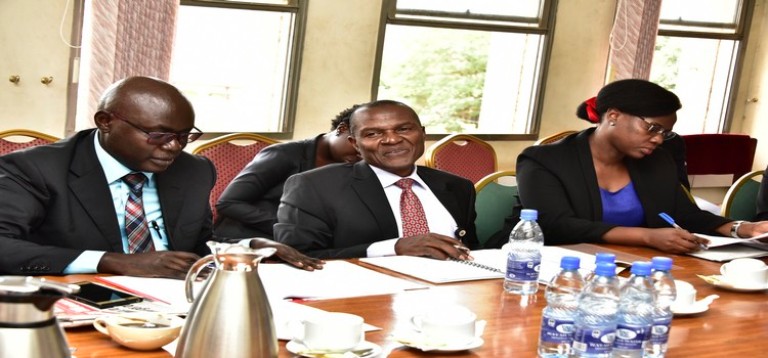British American Tobacco (BAT) Uganda has announced its half year results for the six months ending30thJune 2020; posting gross revenue of Ushs76billion, profit before tax of Ushs 9.9billion and contributions to Government revenue of Ushs 42.9billion. Commenting on the results, BAT Uganda Managing Director, Mathu Kiunjuri said:“I am pleased to report that BAT Uganda’s business continues to show resilience despite the difficult operating environment in the country. “For the first half of 2020, gross revenue reduced by 12% to Ushs 76billion, mainly due to the impact of the COVID-19 pandemic on the consumer purse. With rising unemployment and a significant increase in the cost of various basic consumer goods, the pandemic has left many consumers more cash-stretched than ever. Additionally, the closure of retail outlets led to constrained consumer access to our products. Despite these challenges, our Business continues to be resilient, posting a 2% increase in profit before tax to Ushs 9.9 billion due to prudent cost management measures undertaken to mitigate the decline in revenue.“As we navigate the particularly challenging business environment occasioned by the COVID-19pandemic, the menace of illicit trade is entrenching itself now more than ever, on the back of heightened consumer affordability challenges. This is partly evidenced by the reduction of our contribution to Government taxes in the form of Excise Duty, Value Added Tax (VAT) and Corporation Tax by Ushs7.3 billion to Ushs42.9 billion.
“We are concerned that, despite the enhanced border controls put in place to mitigate the spread of COVID-19, our trade teams continue to report an increased presence of illegal tax-evaded cigarettes in the Ugandan market, primarily tax-evaded cigarettes from Kenya. This is consistent with third party research conducted at the end of last year, which indicates that about 44% of illicit cigarettes sold in Uganda have been smuggled across the Kenyan border.
“Evidently, border enforcement alone is not sufficient to curtail the illicit trade in cigarettes, which continues to deny the Government in excess of Ushs 30 billion every year. Whilst we recognise the opportunity presented by URA’s Digital Tracking Solution (DTS),immediate action is required to redouble enforcement of anti-illicit trade regulations.
This enhanced action includes cooperation between Uganda and Kenya officials in stemming the flow of illicit cigarettes into Uganda, which requires identification of the source of these illegal products and their supply routes.
We also reiterate our call to the Government to ratify the World Health Organisation (WHO’s)Protocol to Eliminate Illicit Trade in Tobacco Products (ITP).
“As part of our continued effort and commitment to build a sustainable business and contribute to Uganda’s economic development, we will continue to engage transparently with the relevant Government agencies to support the fight against illicit trade in cigarettes.
Also commenting on the results, BAT Uganda Chairman, Hon. Dr. Elly Karuhanga said: “The resilient performance of our business reflects our commitment to build a sustainable business that contributes to Uganda’s economic growth. Currently, amidst the ongoing COVID-19 pandemic, our primary focus is to ensure the safety of our employees, maintain business continuity and work with relevant Government agencies to ensure a stable and predictable regulatory environment.
“Looking forwards, I am confident that with sustained investment in our business, the exceptional quality of talent within the Company, and our partnerships with over 30,000 business partners and tobacco farmers, we have the right strategy in place to deliver a better tomorrow for consumers, society, employees and shareholders.”





